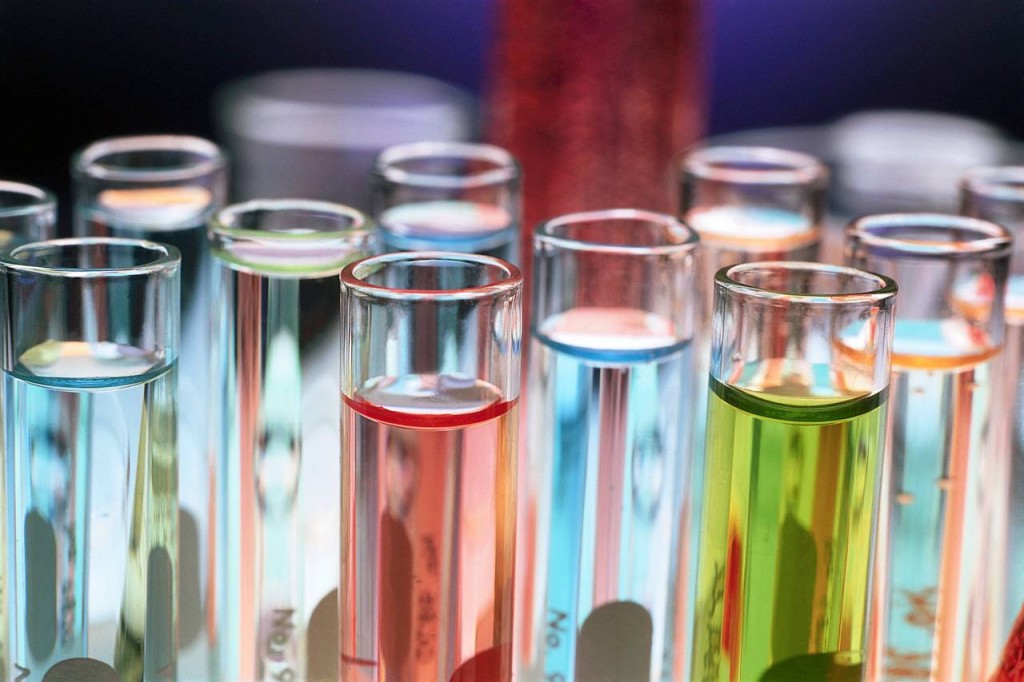Tell the EPA to Prevent Chemical Disasters
 More than 110 million people in the U.S. are close enough to a facility that stores or uses deadly chemicals, like chlorine gas, to be at risk if something unexpected were to happen. One accident is all it takes to put countless lives at risk — including those of first responders. The worst part is that it doesn?t have to be this way. There are currently safe, affordable alternatives available. Unfortunately, the chemical industry isn?t going to use them voluntarily. We have a chance to change that. The Environmental Protection Agency (EPA) is deciding right now whether or not to enforce President Obama?s Executive Order to require the chemical industry to use these safer technologies. They?ve opened the process up to the public for comment. But time is running out. Since 2012 a coalition of more than 100 organizations have sent tens of thousands of emails and letters and petitioned the administration. Today may be the best chance in a generation to prevent future chemical disasters. Take action and urge the EPA to adopt safety standards that prevent chemical disasters by submitting an official public comment.
More than 110 million people in the U.S. are close enough to a facility that stores or uses deadly chemicals, like chlorine gas, to be at risk if something unexpected were to happen. One accident is all it takes to put countless lives at risk — including those of first responders. The worst part is that it doesn?t have to be this way. There are currently safe, affordable alternatives available. Unfortunately, the chemical industry isn?t going to use them voluntarily. We have a chance to change that. The Environmental Protection Agency (EPA) is deciding right now whether or not to enforce President Obama?s Executive Order to require the chemical industry to use these safer technologies. They?ve opened the process up to the public for comment. But time is running out. Since 2012 a coalition of more than 100 organizations have sent tens of thousands of emails and letters and petitioned the administration. Today may be the best chance in a generation to prevent future chemical disasters. Take action and urge the EPA to adopt safety standards that prevent chemical disasters by submitting an official public comment.
Step Up and Protect Bees
Honey bees are responsible for producing 1/3 of our food but they are being wiped out by the indiscriminate use of toxic pesticides called neonicotinoids.? It is the job of the Environmental Protection Agency (EPA) to protect our environment ? this includes bees and other pollinators. Right now, EPA is failing to do its job. In  fact, EPA won?t even finish reviewing the use of these chemicals for another four years!? But bees can?t wait another four years, and neither can we. On Thursday, March 20th, Center for Food Safety will deliver this petition to Gina McCarthy at EPA headquarters in Washington, D.C. Sign the petition today so they can deliver YOUR signature to Administrator McCarthy! As head of the agency it will be up to Gina McCarthy to make sure EPA protects bees and other pollinators from toxic pesticides like neonicotinoids. Help bring this fight to EPA?sign the petition and help us deliver half a million signatures to Administrator McCarthy!
fact, EPA won?t even finish reviewing the use of these chemicals for another four years!? But bees can?t wait another four years, and neither can we. On Thursday, March 20th, Center for Food Safety will deliver this petition to Gina McCarthy at EPA headquarters in Washington, D.C. Sign the petition today so they can deliver YOUR signature to Administrator McCarthy! As head of the agency it will be up to Gina McCarthy to make sure EPA protects bees and other pollinators from toxic pesticides like neonicotinoids. Help bring this fight to EPA?sign the petition and help us deliver half a million signatures to Administrator McCarthy!
Tell the EPA: Stop Letting Companies Replace BPA with Other Toxic Chemicals
Consumers were outraged when they learned that the EPA was allowing the cancer-causing endocrine disruptor BPA in products for kids. Thanks to the public outcry, plastic containers from sippy cups to Tupperware now offer BPA-free alternatives. Unfortunately, that victory isn?t looking so great anymore. New studies have found that many of those “BPA-free” plastics contain other chemicals that are just as bad — or worse — than BPA. These replacement chemicals not only affect brain and organ development in children but could even reprogram your cells to cause diseases generations down the line.?Just as alarming, two years ago the EPA quietly withdrew rules that would classify plastic toxics like BPA and  alternatives as “chemicals of concern,” making them subject to more regulation. Now that we have even more evidence about the dangers of estrogenic chemicals in plastics, it?s time for the EPA to finally protect us from their dangers, not keep sweeping them under the rug. The real problem here is the deeply flawed and outdated 1976 Toxic Substances Control Act, which gets our safety standards backward by presuming that chemicals are safe until proven otherwise. That?s why more than 80,000 chemicals are approved for use but have never been tested for their effects on our health.This results in a dangerous ?toxic shell game? where corporations that are under pressure to remove chemicals known to be dangerous from their products simply replace them with less-well-known ones, which may turn out to be just as dangerous. Unfortunately, congressional action is required to change the Toxic Substances Control Act. That?s highly unlikely in this Congress. But the EPA can step in right now and ensure that chemical companies can?t keep swapping one toxic chemical for another. One of the rules the EPA withdrew two years ago would have closed a major loophole that lets companies keep the results of their health and safety studies private by claiming they contain ?confidential business information.? That information needs to be public so that the EPA can begin to evaluate which chemicals are safe and which need to be regulated or removed from the market. Tell the EPA: Don?t let chemical companies put toxins in the plastics our families use.
alternatives as “chemicals of concern,” making them subject to more regulation. Now that we have even more evidence about the dangers of estrogenic chemicals in plastics, it?s time for the EPA to finally protect us from their dangers, not keep sweeping them under the rug. The real problem here is the deeply flawed and outdated 1976 Toxic Substances Control Act, which gets our safety standards backward by presuming that chemicals are safe until proven otherwise. That?s why more than 80,000 chemicals are approved for use but have never been tested for their effects on our health.This results in a dangerous ?toxic shell game? where corporations that are under pressure to remove chemicals known to be dangerous from their products simply replace them with less-well-known ones, which may turn out to be just as dangerous. Unfortunately, congressional action is required to change the Toxic Substances Control Act. That?s highly unlikely in this Congress. But the EPA can step in right now and ensure that chemical companies can?t keep swapping one toxic chemical for another. One of the rules the EPA withdrew two years ago would have closed a major loophole that lets companies keep the results of their health and safety studies private by claiming they contain ?confidential business information.? That information needs to be public so that the EPA can begin to evaluate which chemicals are safe and which need to be regulated or removed from the market. Tell the EPA: Don?t let chemical companies put toxins in the plastics our families use.

Comments are closed.